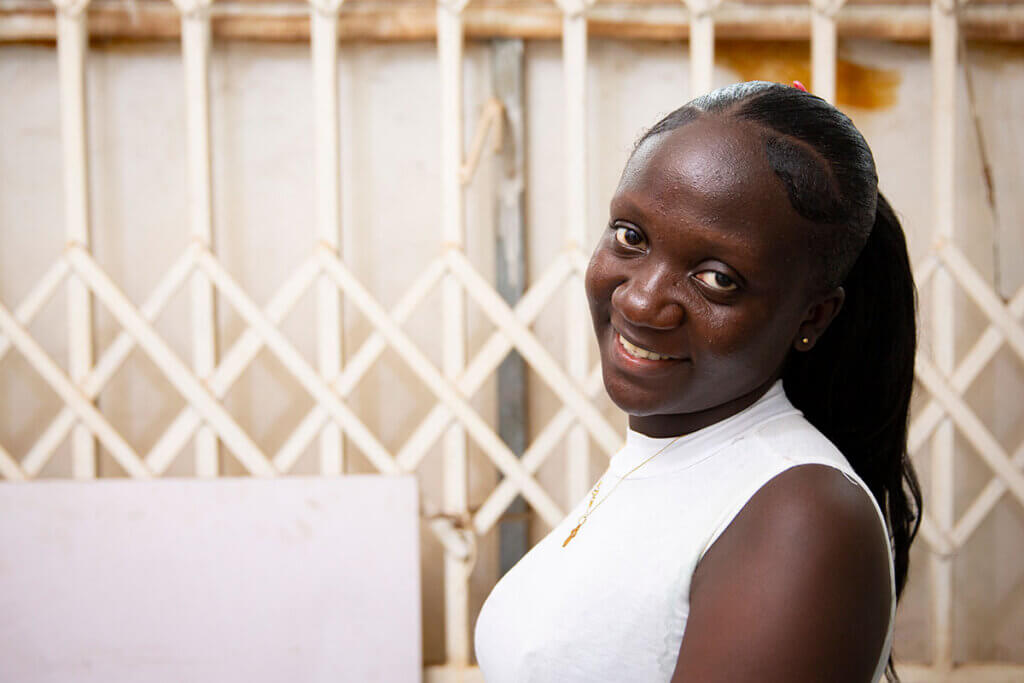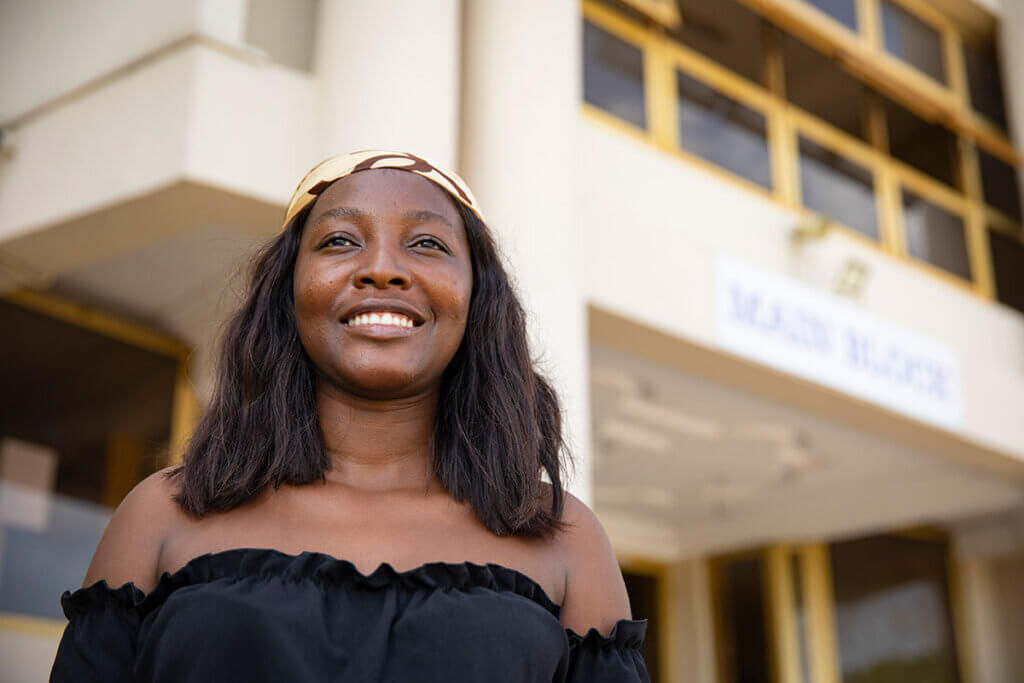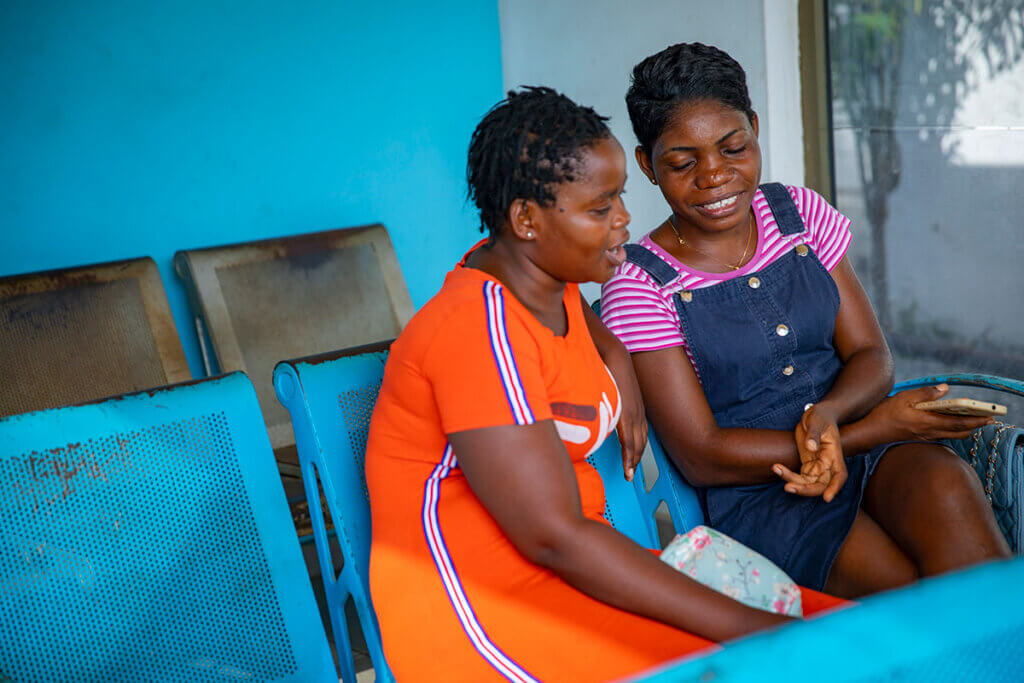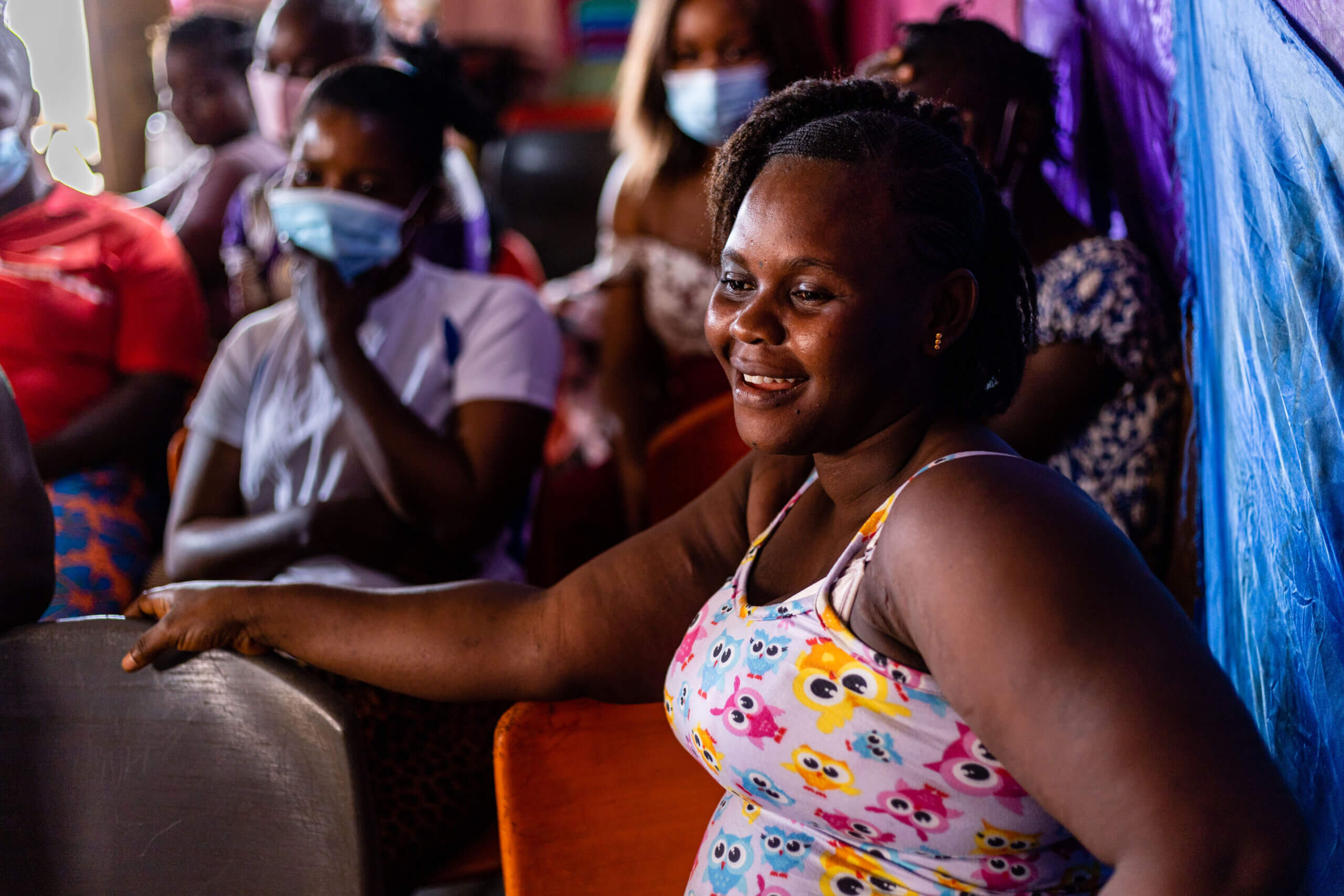Three young women in Ghana share their ambitions
The largest generation of young people in history—1.8 billion adolescents and youth—is growing up, and they have big plans for the future. At MSI, our mission is to make sure those plans aren’t derailed by an unintended pregnancy, so that girls and young women can focus on building the lives they want.
Recently, we visited MSI clinics in Accra and Kumasi, two vibrant cities in Ghana. There, we talked to young women who were using contraception to help them achieve their dreams. They told us about the barriers they’ve faced accessing reproductive healthcare as young people, how they’ve gained control of their bodies, and their ambitions for the future.
Here are three of their powerful stories.
Blessing, 20
“I first heard of MSI when I came to the hospital with my mom last year, while I was in my final year of secondary school. They talked to me about contraception and explained all the options. I decided that I would get the implant because I wanted to protect my future. It has helped me to prevent an unplanned pregnancy, and fight for my future dreams.”

“When my sister was 27, she found out that she was pregnant and wanted an abortion. Sadly, she tried to conduct this herself and almost died in the process. She already has two children, so I shared with her how I had received contraception from MSI and that she could do the same to prevent her from getting pregnant again.”
“It’s important that young people have access to reproductive healthcare so that they can accomplish their dreams for the future. I’m entering university next year. After graduating, I want to open a foundation for the needy in my local community, so that they can have better lives than they can currently. I hope to have kids one day but not right now.”
Sheila, 25
“Having access to contraception from MSI has helped me to continue as a university student. I can live without the fear of getting pregnant and dropping out of school. Without access to contraception, I would probably be a single mom now. I would have got pregnant too early and would not have been prepared to raise a child.”

“Before I came to MSI, I was scared that family planning wouldn’t work, so I was too afraid to try it. When I started taking contraception and it worked, I felt so much calmer.”
“I’m studying public administration, and in the next ten years, I’m hoping to become a lawyer. A lot of people in our country need help and I think I have the ability and interest to help them. I also intend to be a philanthropist, helping people on the street.”
“My hope for women and girls in Ghana is for everyone to have a bright future. More people know of the importance of contraception now and this will help us avoid more children being on the streets, people dropping out of school and people being single mothers. So, there is hope!”
Judith, 26
“Two years back, I took an emergency pill but it didn’t go well for me. I started bleeding and bled for two weeks. I decided to go to MSI and discuss longer-acting methods with them. The method I landed on has been good for me, as I have not been pregnant for the last few years. I’ve been able to focus on attending catering school and running my business.”

“Now, I talk to my friends about contraception and how important it is to continue to live their lives. Growing up, one of my friends became pregnant when we were at school. She hid the pregnancy from everyone as she was so fearful of the stigma. She dropped out of school to hide this from her community. Luckily for her, she was able to return to school following the birth of her child, as her father had enough money to support them both. But this is not the case for many young girls in Ghana that have an unplanned pregnancy.”
“Adolescents need to know that it is their life and their choice to live it the way that they want to. If I had known more about contraception, it could have helped me earlier.”






